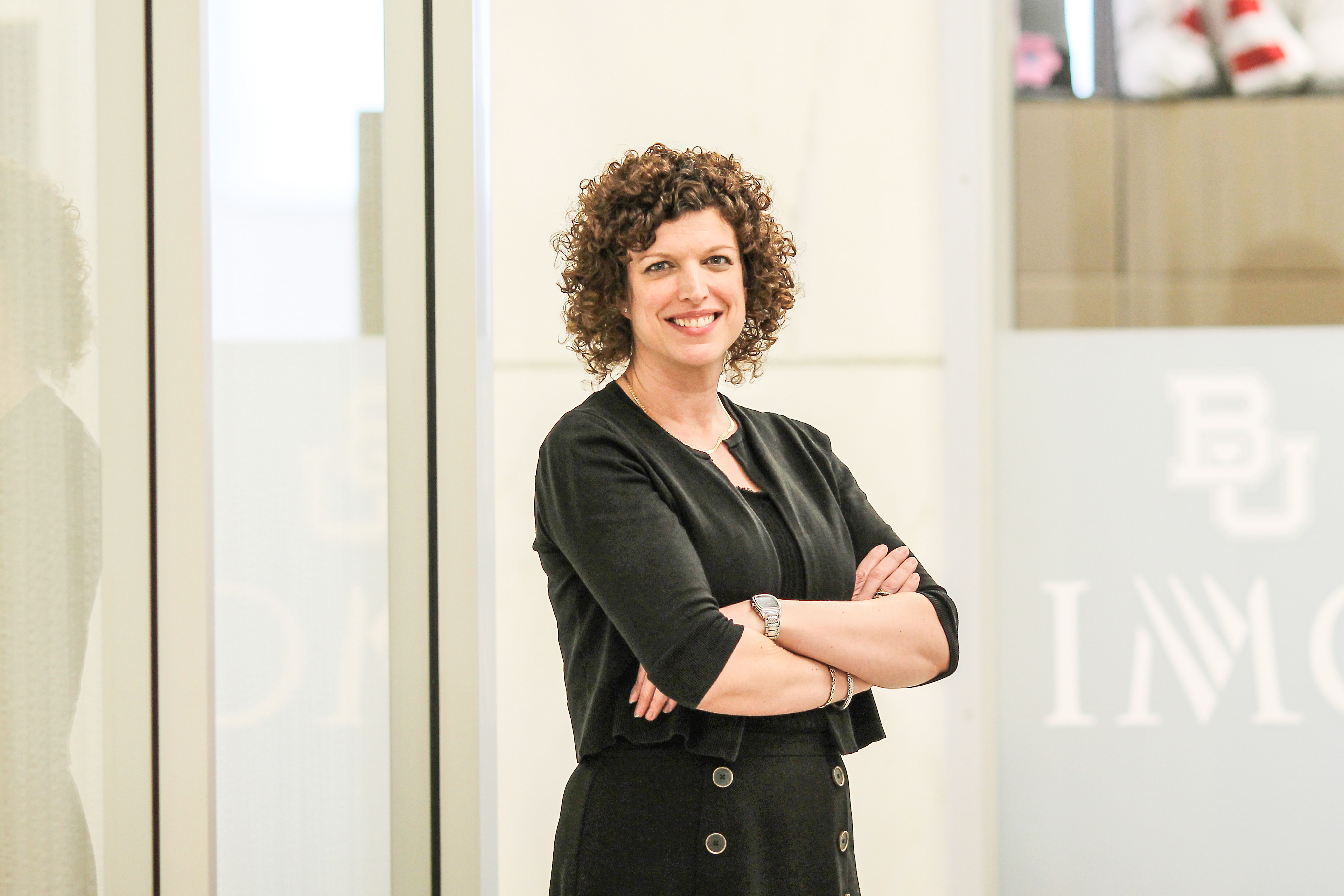Improving Assessments
Proper assessment of challenges facing children dealing with trauma is a key step on the road to healing. And a grant from the Substance Abuse and Mental Health Services Administration (SAMHSA) will help Baylor faculty refine and improve the process.
Sara Dolan, PhD, associate professor of psychology and neuroscience in Baylor’s College of Arts and Sciences, was awarded a $3 million grant from SAMHSA to spearhead a project aimed at providing clinicians and doctoral students who work with those children better tools to provide more accurate assessment.
Dolan, along with collaborators Stacy Ryan-Pettes, PhD, assistant professor of psychology and neuroscience at Baylor, and Jeff Wherry, associate professor of psychiatry at the University of Texas Health Science Center at Tyler, oversees the development and implementation of new training methods for assessment and diagnosis in children ages 8-16.
The grant continues a focus on resilience and recovery in Dolan’s nationally recognized research, which has benefitted communities united by geography, such as West, Texas, or communities bonded by common experience such as veterans and, now, children facing trauma.
“Everyone, at some point, experiences something traumatic,” Dolan says. “My focus is trying to help people realize that they can recover, and it is not something that’s a permanent scar on their soul. It’s encouraging and heartening that SAMHSA is investing in this project, to train clinicians in ways that will spread best practices nationally outside the university academic setting and into an everyday setting that impacts the community.”
Clinicians who work with children facing trauma deploy evidence-based treatments (EBT) in their quest to help the child heal. The SAMHSA grant focuses on a step prior to treatment: assessment. Dolan, Ryan-Pettes and Wherry are developing evidence-based assessments (EBA) designed to help clinicians more thoroughly examine and recognize more specific challenges a child may face beyond PTSD.
“Very few people are focusing on developing best practices for assessment,” Dolan says. Whereas many counselors are trained to move more quickly to treatment, the work being done through the grant provides tools for counselors to use before treatment. For children dealing with trauma, taking the time to walk through EBA instruments can help their clinician recognize underlying issues that can slip through the cracks when assessment is done more uniformly.
“Quick, inexpensive assessments sometimes miss critical things in the process,” Dolan says. “You might be missing that a child has suicidal thoughts because those questions are not being asked in a standard assessment. You could miss that they’re depressed. By just focusing on the trauma, which is important, you could exclude other things that are going on that are treatable and are very important to the kids.”
Clinicians trained through the grant are given instruments used to measure a broad array of issues a child dealing with trauma could face, which provides the clinician with quantitative data to utilize in treatment. Eventually, more than 800 clinicians will participate in the training over a five-year period. After training is complete, researchers will determine most effective training methods and will follow up to see if the instruments continue to be used by clinicians in clinical practice.
“We’ve found that clinicians are excited to participate and that they thought they could really improve their practice,” Dolan says. “This was a little surprising to me. I didn’t know that people would be so eager to change their practice habits. It’s exciting to see. The faster we can get children to the right treatment, the faster they’re going to get better and get back on a healthy developmental trajectory.”
The chance to participate in a grant that will impact communities across the nation extends a research theme for Dolan, whose highly recognized research projects have benefitted communities in a variety of ways.
In 2013, Dolan and James Ellor, PhD, The Dorothy Barfield Kronzer Endowed Professor in Family Studies in Baylor’s Diana R. Garland School of Social Work, formed a crisis intervention team in West following a fertilizer plant explosion that left 15 dead. Dolan and Ellor worked with community members and first responders, and were recognized with the 2013 Jack Colley Citizen Corps Leadership Award from the Texas Association of Regional Councils. In addition to their work in West, Dolan and Ellor formed a psychological intervention team in McLennan County and Waco through the Medical Reserve Corps. Dolan also continues to work with the Waco Veterans Affairs (VA) Center for Excellence to study and aid in life functioning with returning veterans.
Last year, she earned the designation of Citizen Psychologist from the American Psychological Association (APA), one of 30 such recognitions nationally. Citizen Psychologists are chosen for leadership in their communities through public service, volunteerism and other strategic roles beyond the day-to-day work of the practice and teaching of psychology.
Dolan says the opportunities to work with the community and agencies beyond campus borders go hand-in-hand with teaching her Baylor psychology and neuroscience students.
“If you’re doing good research, you impact a larger segment of the community. And there are a lot of ways that research impacts teaching,” Dolan says. “You have meaningful, real-life examples to use with students, and they get energized working with cutting-edge information and opportunities.
“It also helps them with their critical thinking skills. Research gives students a scientific method of thinking that will enrich their academic experience, improve their own performance and equip them as they go forward and practice after Baylor.”
